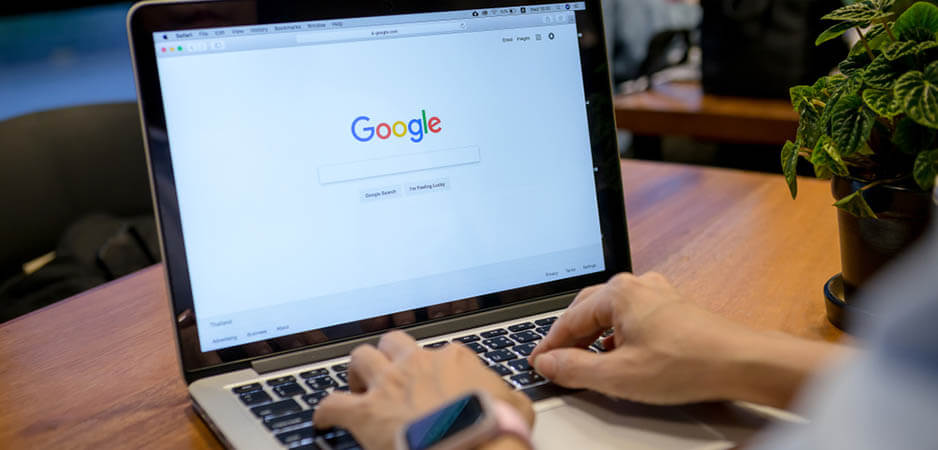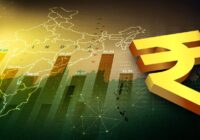Have Google and Facebook literally turned us into a tribe of “know nothings”? The Daily Devil’s Dictionary explains.
If nothing else, Shoshana Zuboff, author of The Age of Surveillance Capitalism, is expanding our socioeconomic lexicon in essential ways. The epithet of the title — surveillance capitalism — sums up what people across the globe are beginning to perceive about the social system we now live in.
Not only are we increasingly becoming the citizens of a surveillance state that provides ever more sophisticated tools of surveillance — presumably to “keep us safe” — but we are willingly sharing the data about everything we do with unidentified and often unidentifiable private interests who may use it, as an expression of their generosity and gratitude, to offer us what we most need and desire.
Interviewed by Democracy Now’s Amy Goodman, Zuboff adds another useful item to our vocabulary: “We now enter the 21st century, where private surveillance capital has institutionalized asymmetries of knowledge unlike anything ever seen in human history. They know everything about us; we know almost nothing about them.”
Here is today’s 3D definition:
Asymmetries of knowledge:
The gap in the ability to process data that exists between intelligent beings, members of the human race who interact and adapt to their environment, and impersonal, unthinking systems that hoard data and — by employing algorithms to make summary judgments about the meaning of that data — act without having to interact and, therefore, without having to understand
Contextual note
Zuboff’s concept is an important one. Promoters of the brave new world of big data and artificial intelligence (AI) identify the incontestable dual advantage of hoarded knowledge coupled with flexible, increasingly powerful algorithms (machine learning). They encapsulate two of capitalist society’s highest values: the virtue of accumulating more and the skill of processing it faster. The keys to efficiency and success.
This guarantees not just asymmetry, but constantly growing asymmetry, responding to another core value of the modern economy: growth as the measure of the health of the economy, which David Pilling dares to call The Growth Delusion. Therein lies the insurmountable asymmetry. Humans cannot compete on any of the three principle measures of economic success: quantity, speed and rate of growth.
Many critics of the trends in technology worry that the performance of machines will be so vastly superior to humans that they will ultimately take control. They call this imaginary point in future history, “the singularity.” One commentator asks the question, “But would that not also mean creating another species with intelligence that may or may not have human interest at heart?”
No one has an answer to that question, since we are still waiting for the singularity to happen (or not happen, as many think). What we do know is that the current version of big, fast and growing data technology is being used to establish and accelerate the growth of the asymmetry between people who use the technology and those who exploit it. And, for the moment, they are using it to ensure their own profit and control, not to transfer that control to the machines. They are guided by the “laws” of economics that assure them that it’s all about doing whatever’s necessary to get a competitive edge as well as pleasing investors.
Historical note
Many observers have pointed out that in the history of mankind, the economy developed through a number of phases, the most dramatic of which was the Industrial Revolution that spanned the 18th and 19th centuries. The 20th century brought us the tertiary economy, where the extraction of resources and then manufacturing were completed by the development of a wide range of services. With the advent of information technology, economists began talking about “the knowledge economy,” which extends the notion of capital or the productive resources of an enterprise to its understanding of its business and marketplace.
In Investopedia’s definition, we learn that: “In a knowledge economy, a significant part of a company’s value may consist of intangible assets such as the value of its workers’ knowledge or intellectual capital.” Interestingly, it notes, with a tone of regret, that “generally accepted accounting principles (GAAP) do not allow companies to include these assets on their balance sheets. When these same economists realize what AI and its knowledge assets represent, they may well be tempted to throw GAAP in the waste basket.
 From a traditional capitalist and entrepreneurial perspective, AI and everything that enterprising entrepreneurs decide to do with it can only be good. It’s about increasing value in the form of volume, speed and growth. But in a context in which only mammoth enterprises can afford it, they are beginning to show some concern that smaller enterprises will not just be left behind, but crushed under the weight of super big data and blinded by the speed of hyperintelligence.
From a traditional capitalist and entrepreneurial perspective, AI and everything that enterprising entrepreneurs decide to do with it can only be good. It’s about increasing value in the form of volume, speed and growth. But in a context in which only mammoth enterprises can afford it, they are beginning to show some concern that smaller enterprises will not just be left behind, but crushed under the weight of super big data and blinded by the speed of hyperintelligence.
Shoshana Zuboff is warning us about something else. People have traditionally believed that free markets mean that people can vote with their pocketbook and their feet and select the products and services that correspond best with their interests. The asymmetry she describes is so radical that none of our choices has any meaning for ourselves, but paradoxically adds to the knowledge and power these companies wield and about which we know nothing. Their machines and algorithms are not about to take over their business. They are still the slaves of these powerful firms. Even more worryingly, these invisible mechanical slaves are programmed with the tools and talent to turn us into their own slaves.
Even if it isn’t the singularity, it seems singularly dire.
*[In the age of Oscar Wilde and Mark Twain, another American wit, the journalist Ambrose Bierce, produced a series of satirical definitions of commonly used terms, throwing light on their hidden meanings in real discourse. Bierce eventually collected and published them as a book, The Devil’s Dictionary, in 1911. We have shamelessly appropriated his title in the interest of continuing his wholesome pedagogical effort to enlighten generations of readers of the news.]
The views expressed in this article are the author’s own and do not necessarily reflect Fair Observer’s editorial policy.
Support Fair Observer
We rely on your support for our independence, diversity and quality.
For more than 10 years, Fair Observer has been free, fair and independent. No billionaire owns us, no advertisers control us. We are a reader-supported nonprofit. Unlike many other publications, we keep our content free for readers regardless of where they live or whether they can afford to pay. We have no paywalls and no ads.
In the post-truth era of fake news, echo chambers and filter bubbles, we publish a plurality of perspectives from around the world. Anyone can publish with us, but everyone goes through a rigorous editorial process. So, you get fact-checked, well-reasoned content instead of noise.
We publish 2,500+ voices from 90+ countries. We also conduct education and training programs
on subjects ranging from digital media and journalism to writing and critical thinking. This
doesn’t come cheap. Servers, editors, trainers and web developers cost
money.
Please consider supporting us on a regular basis as a recurring donor or a
sustaining member.
Will you support FO’s journalism?
We rely on your support for our independence, diversity and quality.






